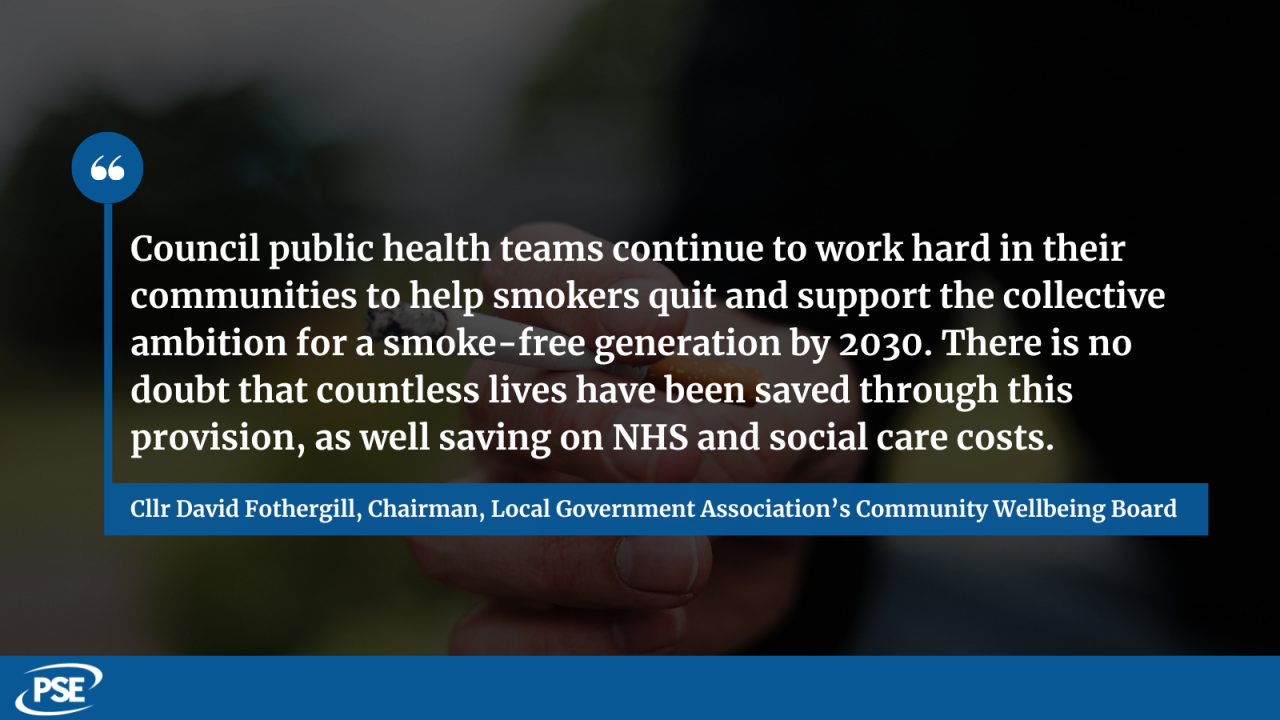New data from NHS England confirms the continued success of local Stop Smoking Services, with over 127,000 people successfully quitting between April 2024 and March 2025, a 22% increase on the previous year.
The figures reaffirm the impact of these council-commissioned services, which have supported more than 10 million quit attempts and helped over five million people quit smoking for at least four weeks since their launch 25 years ago.
The latest annual data shows:
- 238,166 quit attempts were made using Stop Smoking Services
- 127,541 people (53.6%) successfully quit, based on self-reported outcomes
- A 23.8% increase in quit attempts compared to 2023/24
- A 22.5% increase in successful quits year-on-year
Cllr David Fothergill, Chairman of the Local Government Association’s Community Wellbeing Board, commented:
“Local government has led the way tackling the harms caused by smoking, and these latest statistics are a testament to the 25-year success of the stop smoking services leading a steady decline in smoking rates.
“We know that smoking remains one of the leading causes of preventable ill health, disability, and death among adults in England. It creates additional pressures on our health and care systems and affects the quality of life for local people – both smokers and non-smokers.
“Council public health teams continue to work hard in their communities to help smokers quit and support the collective ambition for a smoke-free generation by 2030. There is no doubt that countless lives have been saved through this provision, as well saving on NHS and social care costs.
"The increase in uptake is a positive sign that more people are coming forward to access help, recognising the value of expert, local support in their journey to quit smoking.”

Smokers using these services are up to three times more likely to quit successfully than those who try to quit unaided.
Thanks to tailored, accessible local support, adult smoking prevalence in England has fallen from 26% in 2000 to under 12% in 2023—a major public health achievement.
Health leaders say the surge in engagement reflects growing public trust in these services and the importance of continued investment in local health initiatives.
Image credit: iStock



















